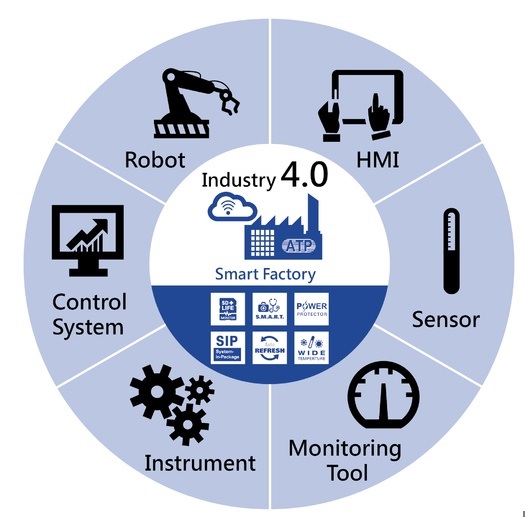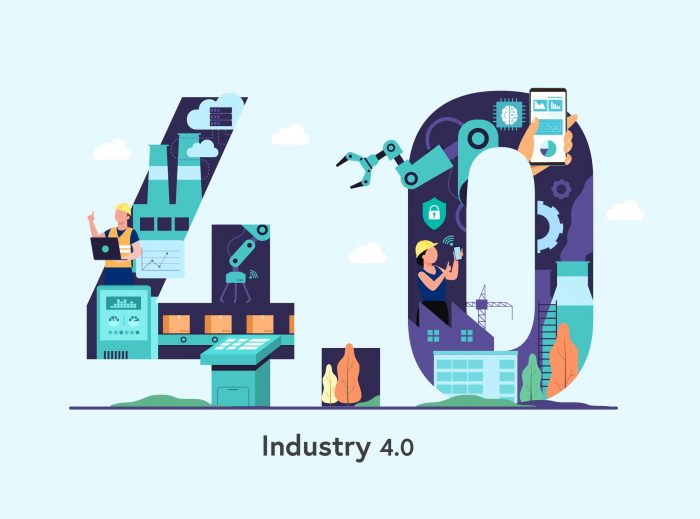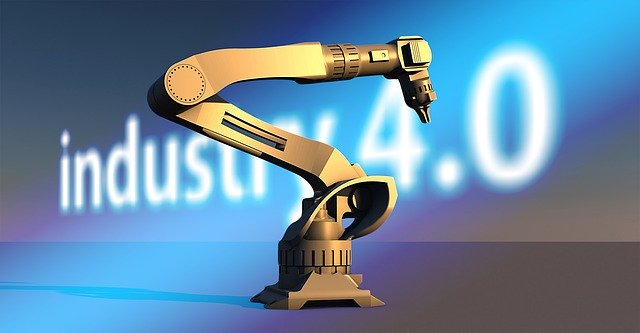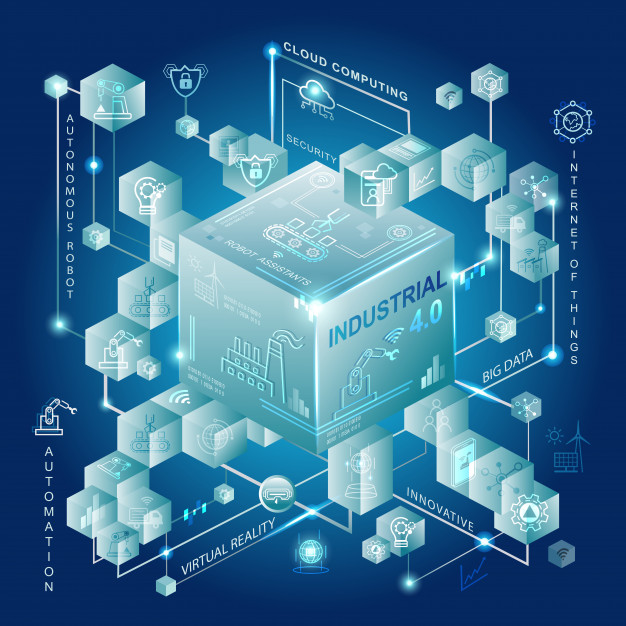Industry 4.0: Evolution or revolution
Audio : Listen to This Blog.
First came the machines. Then came electricity. Computers took charge next. And what‘s in store next??
The manufacturing sector is one place which keeps evolving at a faster pace along with the growth of technology. In the very beginning, when machines were made, mechanization itself brought about a revolution in the manufacturing domain. Then automation made the next big change in the mass production process.
The next big thing now in manufacturing industry is – Industry 4.0. This involves the complete computerization of the manufacturing processes, utilizing the collective potential of computerization and automation to revolutionize how the manufacturing industry works. There are so many arguments about Industry 4.0 being the next Industrial Revolution while some are of the idea that it is just going to be an evolution of the existing technological advancements in the manufacturing sector. So is it going to be a revolution or an evolution?
Few quick facts about Industry 4.0:
The major technologies that would be contributing to Industry 4.0? IoT (Internet of Things), Cyber-physical systems, Cloud Computing all together creating “Smart factory”
- There is “Big” Data involved:
Annually the amount of data globally is increasing by zettabytes. With such huge volumes of data being handled, Big data is coming into the picture. Industry 4.0 would be ready for Big Data. - Improved production efficiency:
With the advent of all these new technologies, the overall mass manufacturing process would not just be more efficient, but also faster. - Smart organizations:
As cloud computing is changing the way infrastructure is managed, production processes and machine organization would all be modified for good with Industry 4.0. - Improved quality of products and services:
Self-optimizing machines, machines that learn and improve their algorithms (machine learning) can produce better results. This can eventually improve the quality of products and services. - Better control of the industrial processes:
With more established automation of the processes, it gives better control. It changes the way manufacturing units are run. - Sufficient data for better decision making:
With adaptive systems, there is ample data accumulation. Computerization would also improve the connectivity among the systems. Connected systems with large volumes of data can help in better decision making. Factors ranging from all required data about the operators, to the health and condition of the machines, can all be monitored continuously to help the industry be ready with all required data at all times. - Easier standardization:
Industry 4.0 would also make it easy to standardize the manufacturing processes. Smarter systems which are interconnected would also be easier to monitor. The systems can be continuously be weighed against the standard parameters to pick out anomalies right at the early stages.
Industry 4.0 would make way for more business opportunities. With Industry 4.0, all the domains would eventually be interlinked. The manufacturing sector would no more be an independent division. There would be the integration of a number of sensors. Continuous data collection and analysis of the data would be needed. The manufacturing units would then need services like data analytics and cloud providers to store and manage the bulk of the data, opening up several new lines of businesses to aid the manufacturing plants.
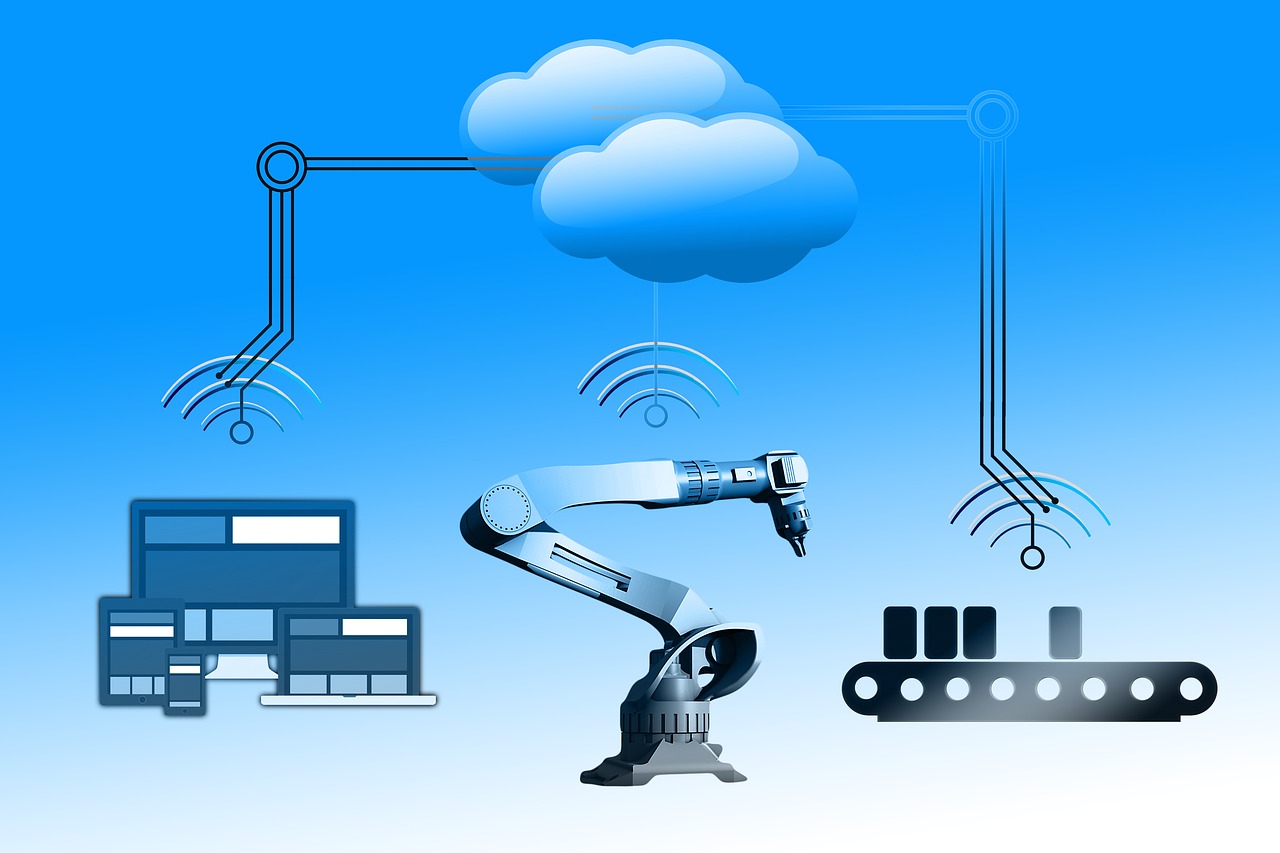
So is it an evolution or a revolution?
We cannot call Industry 4.0 a revolution entirely. This is because none of the segments of Industry 4.0 is totally new to us.
- Automation- has been there for quite a while.
- Computers and internet- have been there for decades
- Cloud systems aren’t totally new either. Several businesses are now moving to cloud based infrastructure.
- The IT sector is already evolving and efficient enough to handle Big Data.
Talking about digitization of the processes in manufacturing, simulation software began to rule the design sector long back. All required data is manually fed to the systems. When you incorporate sensors to collect and feed data, you are evolving the system towards Industry 4.0.
Embedded systems, RFID, biometric data collection from employees, several other technology can be utilized and evolved towards Industry 4.0.
ERP systems (Enterprise Resource Planning) is already in place in several manufacturing units. Evolving the ERP systems and incorporating cloud computing is the step towards Industry 4.0.
All the chunks that make up Industry 4.0 have been there for quite a while. It is all about the combined evolution of these technologies. It is not about an overnight change, a revolution that happened when machines first came in to the picture, during the first Industrial Revolution. Industry 4.0 would thus be more of an evolution than a revolution.
